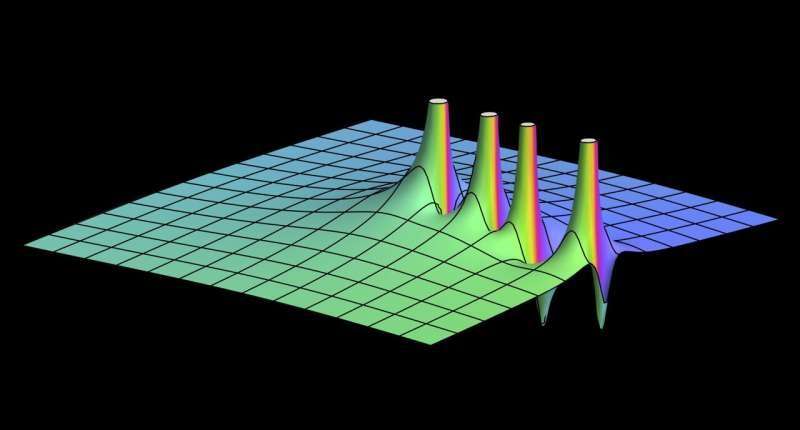Best of Last Week – Exploring the Riemann zeta function, new kind of fuel cell, magnesium's role in immune response

It was a good week for physics research as a team from Virginia Tech made a heat discovery that expanded on an 18th-century principle involving ice placed on a hot surface—Jonathan Boreyko and Mojtaba Edalatpour found that the temperature had to be much higher for the Leidenfrost effect to work. Also, physicist Grant Remmen, with the University of California at Santa Barbara, found a new approach to a $1 million mathematical enigma by coming up with a new way to explore the quirks of the Riemann zeta function. And a team with the CMS Collaboration detected exotic X particles in quark-gluon plasma.
In technology news, a combined team from Pennsylvania State University and the National Renewable Energy Laboratory created a device that wraps around hot surfaces, turning waste heat into electricity. A team with members from the Chinese Academy of Sciences, Tianjin Normal University and Tianjin University developed a new kind of fuel cell that can operate at temperatures between -20 to 200 degrees Celsius. And a combined team from ETH Zurich and the Frankfurt School of Finance and Management developed a new way to control complex systems with artificial intelligence by adding the ability to handle unexpected interruptions such as power outages. Also, a team at the Allen Institute made improvements to a Pictionary-like game they created called Iconary to improve the communication skills of AI agents.
In other news, a team at Bristol University found that granddaughters and great-granddaughters of men who started to smoke before reaching puberty had more body fat than normal. Also, a combined team from the Centre for Polar Observation and Modelling and the British Antarctic Survey posted satellite images showing a "mega-iceberg" that released 152 billion tons of fresh water into the ocean as it moved past South Georgia.
And finally, a team from the University of Basel and University Hospital Basel found that magnesium is essential for the immune system, including in the fight against cancer.
© 2022 Science X Network